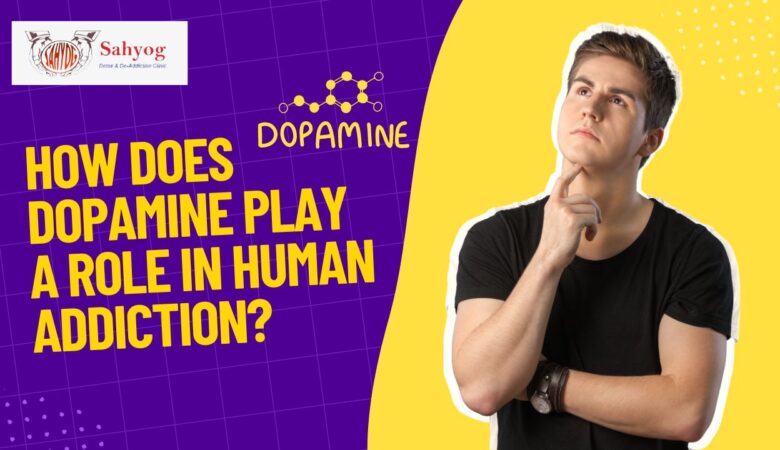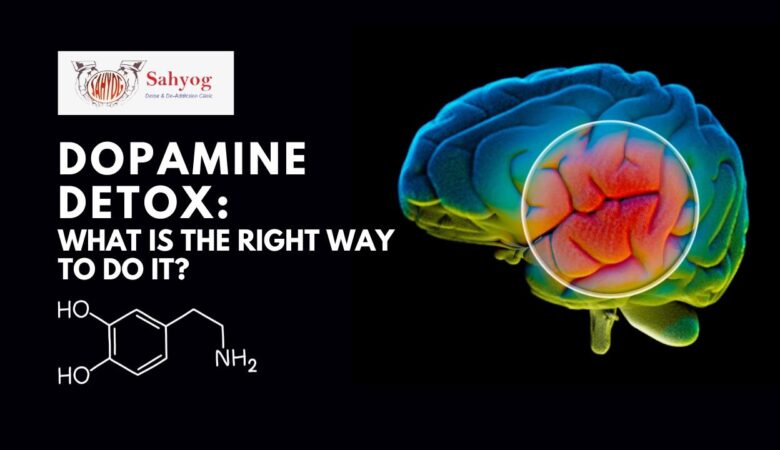How Does Dopamine Play a Role in Human Addiction?
Introduction Addiction is a complex neurological disorder that affects millions of individuals around the world in different ways. But have you ever wondered why an individual gets addicted to something? How do they become so obsessed with it, to the point where they can’t control their behavior? The answer lies in dopamine. Dopamine is a neurotransmitter responsible for creating feelings of pleasure in humans, and it plays a major role in human addiction. In this blog post, we will explore how dopamine works, how it contributes to addiction, and what steps can be taken to reduce its impact. What is dopamine and addiction? Dopamine is a neurotransmitter that plays a role in the brain’s reward system and pleasure centers. It is released when we do something that feels good, like eating food or performing an activity that we enjoy. This release of dopamine makes us feel pleasure and motivates us to keep doing those things. Addiction occurs when someone can no longer control their use of a substance or behavior, even though it may be harmful to them. It is a chronic, relapsing disorder characterized by compulsive drug-seeking and use despite negative consequences. Dopamine plays a role in addiction because it is released in response to the substance or behavior. This reinforces the addictive behavior and makes the person want to keep doing it. Over time, the person needs more and more of the substance or behavior to get the same dopamine release, which can lead to addiction. Is dopamine important/beneficial? Besides controlling the brain’s reward and pleasure centers, Dopamine also plays an important role in motivation, memory, and attention. Drugs of abuse increase dopamine levels in the brain by directly affecting dopamine neurons or by releasing dopamine from other nerve cells. This flood of dopamine produces the “high” or euphoric feeling that people experience when they use drugs. Dopamine is important because it helps us feel pleasure. The problem with addiction is that drugs hijack this system. Drugs produce a much bigger release of dopamine than natural rewards like food or sex. This excess dopamine creates feelings of pleasure that are much stronger than anything we could experience naturally. Over time, the brain adapts to this higher level of dopamine by reducing the number of dopamine receptors. This makes it harder for the person to feel pleasure from anything other than the drug, making quitting difficult. What are the potential disadvantages of dopamine? The potential disadvantages of dopamine include: 1) May lead to addiction: Dopamine can lead to severe addiction in people. This is because when experienced once, people will continue to seek out behaviors that make them feel good and pleasurable, leading to addiction. 2) May create feelings of euphoria: Dopamine release holds the potential to create feelings of pleasure and euphoria in the person. This can prove to be addictive, as the person will continue to seek such behavior again and again to feel the same pleasurable feeling. 3) May lead to impulsive behavior: Dopamine release can even lead to impulsive and risky behavior in people. This is because people try to chase the feeling of pleasure they get from dopamine release, which can make them impulsive and even act riskily. 4) May interfere with normal brain functioning: Dopamine and its addiction can be highly severe as it can interfere with normal brain function and development, leading to cognitive impairment and other problems. How does dopamine play a role in Human addiction? Dopamine helps to regulate mood and motivation. When someone uses drugs or alcohol, they are stimulating the release of dopamine in the brain, which results in feelings of pleasure and euphoria. This might further lead to addiction in that person as he or she may constantly seek out these substances to experience these pleasurable effects again and again. Dopamine plays a very important as well as severe role in human addiction by providing people with a sense of pleasure when they use drugs or alcohol. Additionally, dopamine can impact decision-making and the ability to resist cravings for substances. People who have lower levels of dopamine will find themselves more likely to give in to their cravings due to facing difficulty in resisting them, therefore, further increasing the risk of addiction. Finally, dopamine also plays a major role in relapse prevention. When someone who is addicted to drugs or alcohol is abstinent from these substances, their dopamine levels can become low, which can increase their risk for relapse as they seek out the pleasurable effects of using again. Is dopamine addiction curable? What are the treatment options available? Yes, dopamine addiction is curable. But that is only for as long as you’re not willing to relapse. There are several treatments available for those addicted to dopamine to help reduce their addiction and go back to their normal way of life. The treatment options for the same include: Cognitive-behavioral therapy: Cognitive-behavioral therapy is a type of therapy that helps people addicted to dopamine to identify as well as change the thoughts and behaviors that contribute to their addiction. Medications: There are several types of medications that can be used to treat dopamine addiction in people, each varying based on the individual. These can include antidepressants, anti-anxiety medications, and antipsychotic medications. Detoxification: Detoxification is a treatment process for addiction in which the body is rid of the drugs as well as alcohol that it is dependent on. The detoxification treatment process can take place in a hospital or medical facility. Rehabilitation: Rehabilitation refers to a program in which people addicted to dopamine receive treatment for their addiction and learn tips as to how to not relapse and live a sober, happy, and healthy life. Support groups: Support groups are a great way to provide a safe and supportive environment for people struggling with addiction. These groups can help individuals learn how to cope with their addiction and stay sober. As you might be well aware, getting addicted to anything is harmful to both your mental health as


